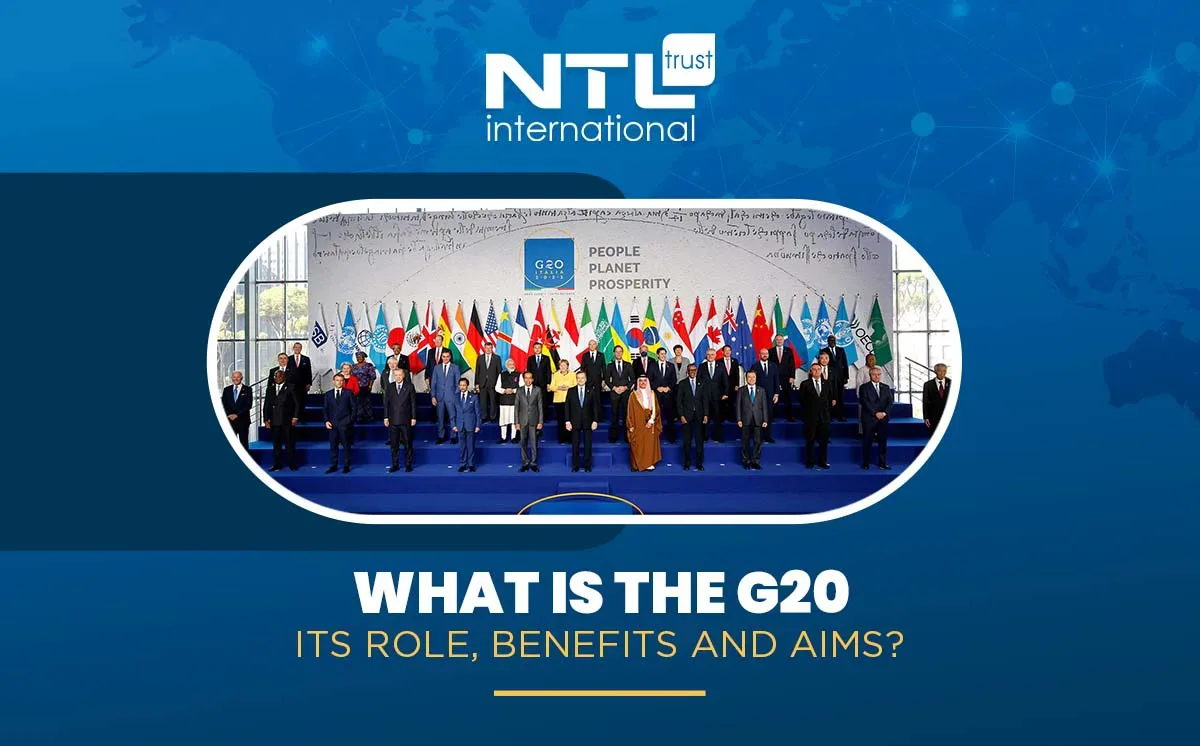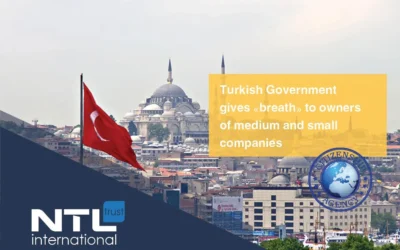
Group of twenty G20 is an international forum made up of 19 countries plus the European Union. The Group of Twenty was established in 1999, and includes the major economies of the world to discuss and coordinate global economic policies and promote international financial stability. You will read in the following article:
- Who are the member countries of Group of twenty G20?
- What is the role of the G20 in the global economy?
- What are the benefits of the twenty group?
- What are the objectives of the Group of Twenty in the global economic field?
Who are the member countries of the Group of twenty G20 ?
The G20 is a forum that includes both developed and developing countries, which are distributed in various continents of the world, namely:
- Africa: South Africa.
- Asia: China, Japan, Republic of South Korea, Saudi Arabia, Türkiye, Russia, India, Indonesia.
- European continent: Germany, France, Italy, Spain, United Kingdom, European Union.
- Latin America: Argentina and Brazil.
- North America: Australia, the United States, Canada.
What is the role of G20 in the global economy?
Group of twenty G20 has an important role in shaping global economic policies, and its primary mission is to facilitate discussions and cooperation among the world’s major economies to promote economic growth, stability and sustainable development.
The tasks of the G20 can be summarized through the following points:
- Policy coordination: The G20 serves as a platform for member states to coordinate their economic policies and exchange ideas. Through regular meetings and working groups, policy makers discuss issues such as fiscal and monetary policies, structural reforms, and trade-related matters. This coordination helps harmonize policies across countries, and reduce policy conflicts between them.
- Crisis management: Group of twenty G20 plays a critical role in crisis management, especially during financial and economic crises. By stabilizing markets, restoring confidence, and preventing crises from escalating. During the 2008 global financial crisis, G20 leaders met and took collective action to address the challenges and implement measures to mitigate the impact of the crisis.
- Financial Regulation and Reform: The G20 focuses on improving global financial regulation and reform to enhance the stability and resilience of the financial system. It promotes the implementation of internationally agreed standards and regulations, such as those established by the Financial Stability Board. By strengthening oversight, addressing regulatory loopholes, and improving risk management practices. Group of twenty G20 also aims to prevent future financial crises.
- International Economic Cooperation: The G20 strengthens cooperation among member states to face common economic challenges. This collaboration extends beyond economic matters and often includes discussions on broader issues such as climate change, energy security, and sustainable development. The G20 serves as a platform for dialogue and cooperation, allowing countries to work together to find common solutions to global problems.
- Engaging with Non-Members: Group of twenty G20 also engages with non-member states and international organizations to ensure broader representation and inclusiveness. The G20 seeks to integrate different country perspectives through discussions and decision-making processes. This engagement helps promote a more comprehensive and balanced approach to global economic governance.
What are the benefits of the twenty group?
- Global Economic Governance: The G20 serves as a major platform for strengthening global economic governance. By bringing together major economies, it enables coordination on economic policies and facilitates dialogue on critical issues affecting the global economy.
- Crisis management: A critical benefit Group of twenty G20 is its role in crisis management. In times of financial or economic crisis, the G20 provides a platform for rapid and coordinated responses aimed at stabilizing markets, restoring confidence and preventing crises from escalating.
- Enhancing Cooperation: The G20 strengthens cooperation among member states, leading to greater understanding and trust and the establishment of strong bilateral and multilateral relations. This cooperation extends beyond economic issues and often includes broader global challenges such as climate change and sustainable development
- Inclusivity: Group of twenty G20 includes both developed and developing countries, giving emerging economies a voice in global economic discussions. This inclusiveness helps ensure that the interests and perspectives of a wide range of countries are taken into account, promoting a more balanced and representative approach to global economic decision-making.
What are the objectives of the Group of twenty G20 in the global economic field?
- Economic growth and stability: The primary goal of the G20 is to promote strong, sustainable and balanced economic growth at the global level. Member countries cooperate to address challenges such as trade imbalances, financial market stability, structural reforms, and investment promotion.
- Financial Regulation and Reform: The G20 aims to improve global financial regulation to prevent future financial crises. Efforts are focused on enhancing the resilience and stability of financial institutions, strengthening supervision, and implementing reforms to mitigate systemic risks.
- International Trade and Investment: The Group of twenty G20 supports an open and inclusive global trading system. It promotes the reduction of trade barriers, promotes fair and transparent trade practices, and seeks to advance the liberalization of international trade and investment.
Development and poverty reduction: The G20 recognizes the importance of inclusive and sustainable development. It seeks to meet development challenges by encouraging investment in infrastructure, supporting sustainable development goals and strengthening cooperation with developing countries.
Where was the recent hosting of the Group of twenty G20?
- Indonesia 2022 Theme: “Recover Together, Recover Stronger”
- India in 2023 and the theme was “One Land, One Family, One Future”.
- It will be hosted by Brazil in 2024, followed by South Africa in 2025.
A guest is invited to the summit every year, where several countries were invited: Egypt, Bangladesh, the Netherlands, Mauritius, Oman, Nigeria, Spain, Singapore, and the UAE.
Tourism in Germany and tourist attractions
There are various ideas for enjoying your time in Germany; from hiking in the Alps or low mountain ranges to beach holidays in Rügen, Usedom or Sylt, cultural trips to Berlin, Hamburg or Munich, or along the Rhine. You can take excursions.
Istanbul Canal, a start of new dream
“Istanbul Canal is a project that will increase the strategic importance of Istanbul”
The Turkish Government Gives “Breath Credit” to Medium and Small Companies
In dealing with the Covid-19 outbreak, the Turkish government continues to support its people to overcome this period. Accordingly, President Recep Tayyip Erdogan announced a new economic support ” NEFES KREDİSİ: Breath credit” to assist various sectors.
Now it possible to apply for Turkish Citizenship through e-Devlet
To obtain Turkish citizenship the e-government portal /e-Devlet/, in cooperation with the Directorate of Souls and Citizenship, launched a very important and awaited service
Naguib Sawiris launches a second Project in Grenada
New project for Mr. Naguib Sawiris in Grenada “Beach House By The Silversands Hotel”.





